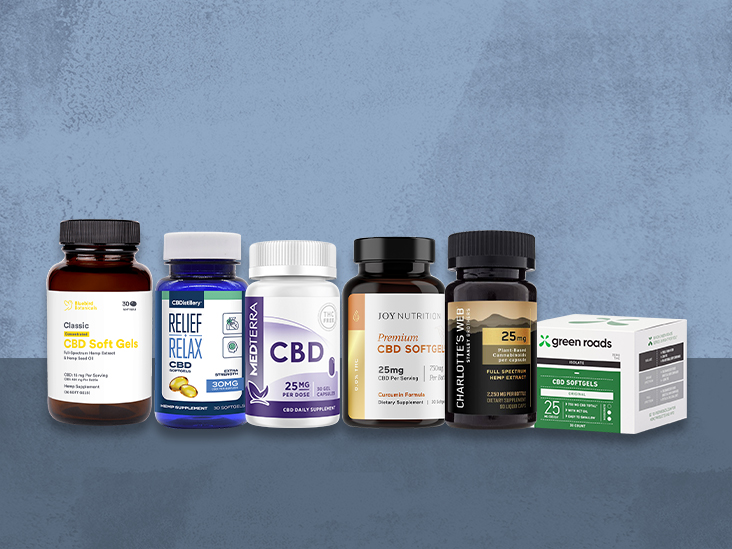
One question that you might want to ask if you are considering moving to Delaware is "Is marijuana legal in Delaware?" Surprised to discover that medical marijuana is legal in Delaware? But, it is illegal to possess and grow cannabis for recreational use.
Delaware also has many laws regarding marijuana use. One of these laws is that marijuana cannot be consumed while driving. It is an offense to grow marijuana indoors. Additionally, marijuana cannot be transported by the state. Also, you can only consume marijuana in private spaces.
The state's Office of Medical Marijuana oversees the regulation of medical cannabis. Their primary purpose is to ensure that patients and caregivers have safe access to medical cannabis. They have created regulations to ensure that only approved cannabis products and that only qualified patients are able to purchase marijuana.

You will need a medical marijuana permit if you plan to use cannabis in Delaware. Patients are allowed to have up to six ounces of marijuana a month. Only residents of the state are allowed to have this amount. A patient might be able to name a caregiver to order the medicine.
Patients suffering from serious illnesses may have access to medical cannabis. Conditions such as PTSD, HIV/AIDS, Lou Gehrig's disease, chronic pain, and dementia are all qualifying conditions. There are strict guidelines that govern cannabis use in the State, but these don't protect patients who are negligent or break the law.
Those who qualify for the medical marijuana program can purchase three ounces of usable weed every 14 days from an OMM-approved compassion center. These centers are located in Newark, Wilmington and Smyrna. Only patients with an approved medical card can use their card to purchase at these centers.
Delaware residents can also petition DHSS for certain conditions to be added to the qualifying illness list. A letter from your doctor certifying that the qualifying condition you are presenting will be required. You will also need to provide proof of residency and pay $50 for an application fee.

Delaware has made it illegal to possess small amounts of cannabis. You can't be charged or arrested for this offense since 2015. However, you could still be fined. Additionally, you can have your record expunged after five or seven years.
The Delaware legislature passed a bill that allows for medical cannabis consumption. It was approved in 2022. There is no additional tax in Delaware on medical cannabis, but you must still comply with the state's possession restrictions.
Delaware has legalized medical marijuana. But, you cannot purchase marijuana from compassion centres or other dispensaries in the state. To ensure you are following the state's rules, you should store your weed in your glove compartment or trunk.
FAQ
How does the price of CBD vary across different states?
Prices for CBD products vary widely depending on where you live. In fact, prices can differ by more than ten times!
In general, prices increase the further north you go. For example, in Alaska, CBD costs an average of $35 per gram, while in Hawaii, it costs around $200 per gram.
This trend is evident throughout the country. The prices range from $5 to more than $2,500 per gram.
Why is it happening?
The varying levels and regulations of cannabis regulation are one reason prices can vary widely. Some states require that all CBD products contain very little THC (the psychoactive component of marijuana). Others do not care about the level of THC.
This is why some companies decide to sell products in one country and then send them to another.
Is the CBD industry growing?
Yes. And this growth is expected to continue into the future as legalization spreads across North America. Canada was the first country to legalize recreational cannabis use. Several states also have medical marijuana laws.
As more states adopt legislation that allows medicinal marijuana access, this trend is likely to continue at least for the next decade.
Legalizing marijuana is also a good economic decision. As well as providing a lucrative alternative market for farmers, there are many other benefits to legalizing pot.
It could help decrease crime rates by reducing illegal drug availability. It could also bring in tax revenue to governments.
As legal weed becomes more popular, many people will choose to reduce their alcohol consumption. This would lead to fewer hangovers as well as lower health care costs.
For chronic pain patients, marijuana may even improve quality of their lives. Many believe that THC (the active ingredient in marijuana) helps to relieve the symptoms of nausea and muscle spasms associated with chemotherapy.
A lot of people believe that marijuana is a good option for treating anxiety and depression. According to some studies, marijuana can be used to treat schizophrenia.
Even though the CBD sector looks bright, there are still many challenges.
Is the CBD market saturated?
CBD is seeing a steady growth rate of 25 percent annually. This growth is expected continue for at most five more years. The industry is forecast to grow from $2 Billion to $5 Billion by 2020.
Canndoc Ltd and GW Pharmaceuticals are the dominant players in the CBD market. Both companies focus on developing high-quality pharmaceutical-grade products. They haven't been very successful so far. Both are struggling to get traction on market.
Cannabidiol is an extract of cannabis with less than 0.3% CBD. It does not produce any psychoactive effects. It can be used to treat epilepsy or other medical conditions. It is also used frequently as a dietary addition.
There are many different types of CBD products available. Some CBD products are made with whole plants extracts, others use CBD isolates.
All of these products share one thing: They contain low levels THC.
This makes them legal under US federal law. You will still need to follow local laws if you are selling CBD products. Check with your state regarding the sale of CBD products.
There are also several states that CBD products are prohibited. These are California, Colorado. Florida. Mississippi. Missouri. New York. North Carolina. Ohio. Oklahoma. Oregon. Rhode Island. South Dakota. Texas. Utah. Virginia. Washington.
CBD products should not be made if you reside in these states.
Is CBD a good company to invest?
As hemp-based products gain popularity, so does the market. The market for hemp-based products could reach $1 billion by 2022, according to estimates.
It is also expected that the market will continue to grow at an annual rate exceeding 20% through 2020 when it reaches $2.5 Billion.
Hemp oil has been used in many beauty products and health care products including creams, lotions.
There are many CBD-infused food items, such as snacks, dog treats and pet foods, that can be produced by companies.
CBD is legal in all 50 states. However, this could change very soon. Businesses will find it easier to legally operate legally as more research is done on CBD's potential uses.
With these factors in mind, it's clear that investing in CBD can be a lucrative venture.
Statistics
- A recent systematic review of human trials also reported that individuals with epilepsy receiving CBD (5–20 mg·kg−1·day−1) were more likely to experience decreased appetite than those receiving placebo (i.e., ~20 vs. 5% of patients) (ncbi.nlm.nih.gov)
- A recent study [161] also found that in vitro CBD treatment (i.e., ≤ 2 h exposure to 10 μM) induced ~40% vasorelaxation in isolated (pre-constricted) (ncbi.nlm.nih.gov)
- CBD seems unlikely to directly influence sleep in healthy humans [115] (and maybe “sleep-promoting” in those with certain comorbid conditions) (ncbi.nlm.nih.gov)
- The use of these products is likely to become even more widespread if the World Health Organization's recommendation that CBD no longer is scheduled in the international drug control conventions is adopted by the United Nations member states [201]. (ncbi.nlm.nih.gov)
- As a substance that was federally illegal before the passage of the 2018 Farm Bill, hemp-derived cannabinoids with no more than 0.3% THC still face a regulatory grey area. (forbes.com)
External Links
How To
What are the main issues with the CBD industry.
The market for CBD products is expanding at an astounding rate. Businesses looking to get into this market face many obstacles. There are many challenges facing businesses looking to enter this space, including low consumer awareness, high costs of entry and limited access to capital.
Many consumers do not know what CBD is or how it works. This means that consumers are unable make informed decisions about purchasing CBD products.
Many CBD companies depend heavily on word of mouth marketing. This is costly, as it requires advertising and the hiring of staff to promote their brand.
Another issue for new entrants is the high cost production. It is very expensive to obtain the raw materials required for CBD products. CBD oil is made from hemp that has been grown in particular climates.
It takes approximately $1,000 per acre to grow enough hemp to process into CBD oil. As a result, many small farmers cannot afford to start.
The lack of capital access is another obstacle new entrants to the CBD market face. Many people who want to start a business are discouraged by banks due to the stigma associated with the industry.
The sale of CBD products is still subject to regulatory uncertainty. There are no guidelines for how CBD products should market.
Although some states have passed legislation restricting CBD product sales, this has not become a national policy.
So far, only two states - Maine and Nevada - have legalized recreational marijuana.
However, some states like Massachusetts and Michigan are considering similar measures.
These changes could lead to increased competition between CBD manufacturers.
These factors have led many entrepreneurs to choose to work remotely rather than starting a physical business.